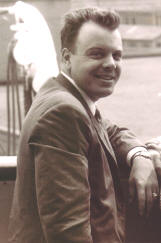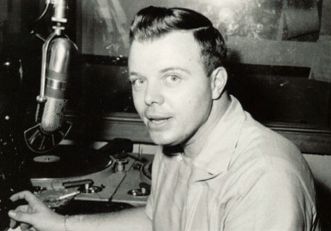
Don Keyes
Q: What exactly was your title with McLendon and how long did you hold it?
A: My title with the McLendon Corporation was
National Program Director. I had been station PD at KTSA and at KILT and had
done afternoon drive on the air. Later, I got the title of Vice President,
Programming and later, Assistant to the President. But the actual working
title was National PD. I was NPD from the Fall of 1957 to December of 1966
when I went out on my own buying a station in Canton, Ohio and in 1980, in
Tallahassee, Florida.
Q: What part did you have in WAKY's launch?
A: I am the guy who put WAKY on the air
back in 1958 if memory serves me. I hired all the air personnel, including
Jack Sanders and had the jingles cut, promos recorded in Dallas, etc.
Q: How much control did you have over WAKY
and how much control did the local PDs have?
My control over the station PDs was quite
simple. We at the home office laid out the basic format to be followed and the
PD was expected to follow it. I would make secret trips to our markets to
monitor the stations and would then meet with the PD to show him what I had
found. Actually, the General Manager was the ultimate boss at the station
level but we had worked together for a long time and had mutual respect. The
managers usually welcomed my visits because none of them were programmers and
frankly, didn't have time to thoroughly monitor the station what with sales
calls, etc.
Q: Why did Gordon McLendon think Louisville
was a good market to acquire a station?
A: Gordon chose Louisville because it was a
major market and the facility was for sale at the right price, For years, we
always tried to buy mid-dial or low on the dial to get the best coverage
possible. WAKY, with 5 KW at 790 was a super facility.

Don
Keyes on the air at KLIF in Dallas in the mid '50s
Q: Did you think WKLO, who had already
switched to Top 40, posed a threat?
A: No, we weren't concerned about WKLO. Believe
it or not, when we took over WGRC in 1958 the big competition in town was WINN
whose programming consisted of 15 minute segments of various pop artists. It
was unbelievably bad and in we come with the usual flying circus. In two
months, we had a 60% share of audience, the biggest success story McLendon
ever had.
Q: Tell us about the song that was played
continuously when WAKY launched its format. We've heard different things about
the exact title and how many days the song was played before shifting into
regular programming.
A: The song WGRC played
(not WAKY) for not one but three days was "The Purple People Eater"
by Sheb Wooley. WGRC (named for George Rogers Clark) were the
call letters when we bought the station. During the marathon record play, WGRC
was barely mentioned. The idea was to get people talking about what was going
on at 790 kHz and get them to tune in and see. Then, on the morning of the
fourth day we broke with the new format and proceeded to kick some serious
butt!
Q: Why did McLendon sell the station...and
how did you feel about that?
A: I think he wanted the money to buy an even
larger market, which, as I recall, turned out to be Buffalo or Chicago. How
did I feel about it? No feelings. It was a business decision. Emotions and
business don't mix.
 |